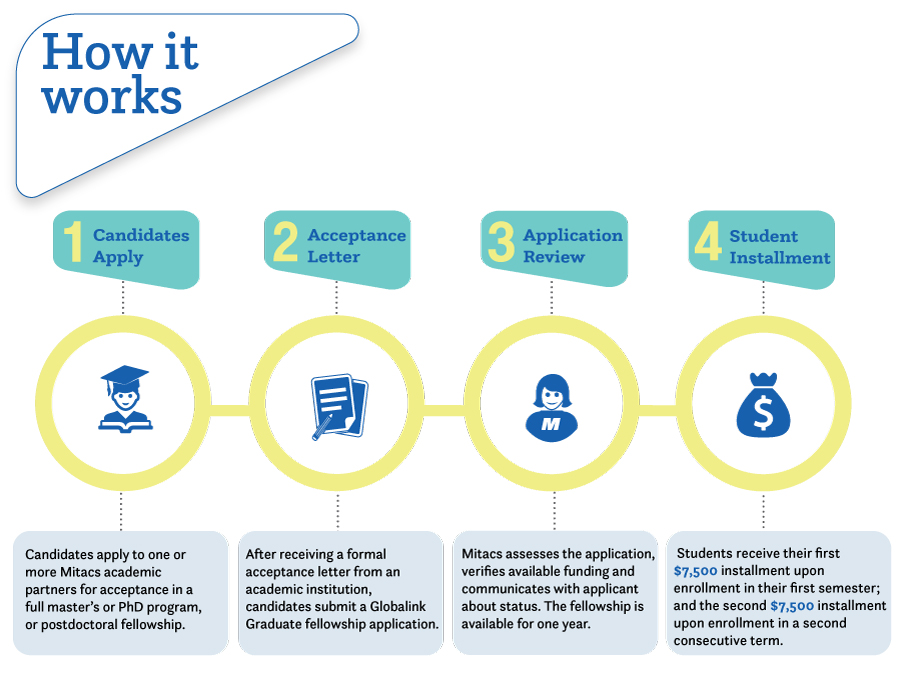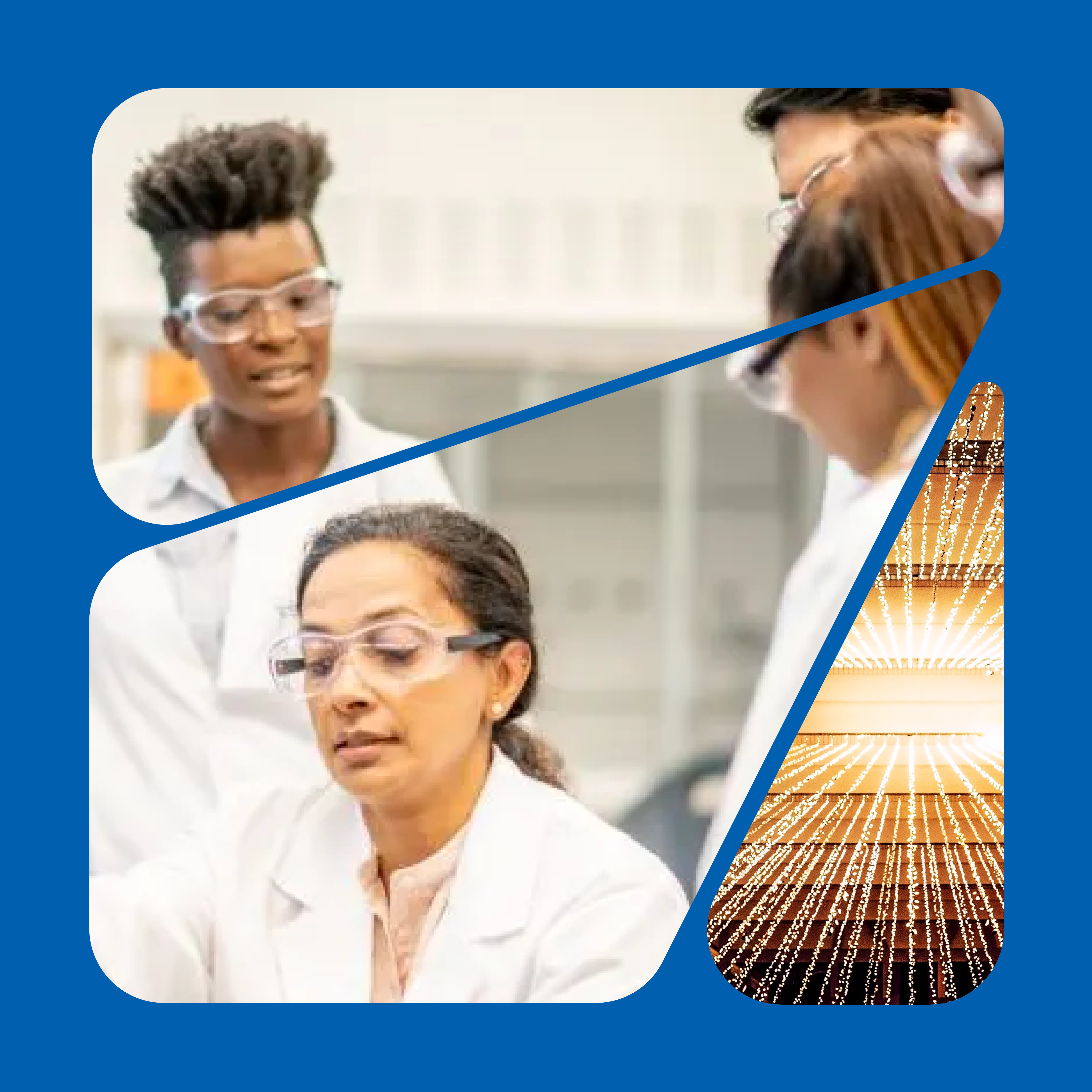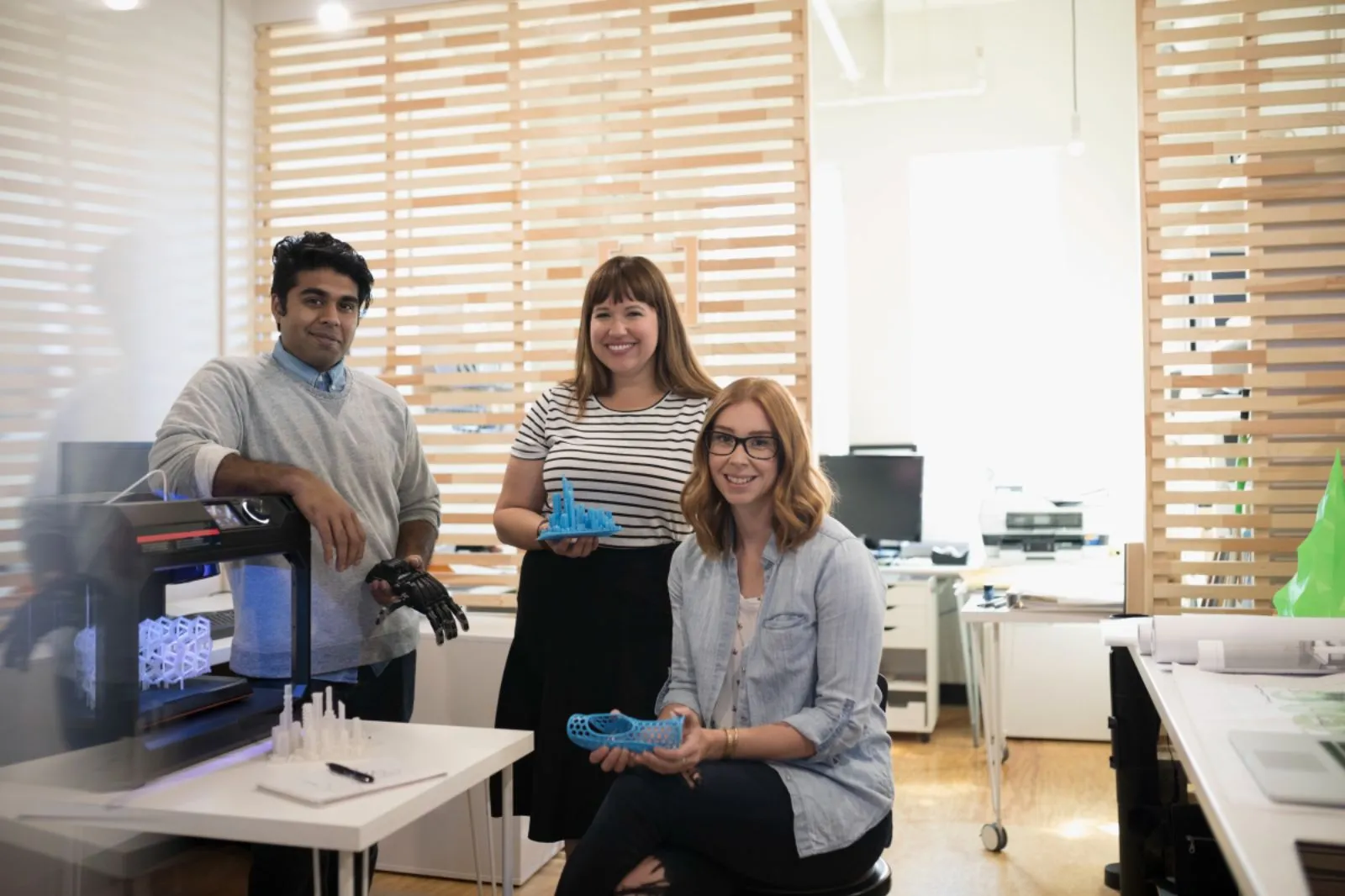
Program Details
The Globalink Graduate Fellowship provides $15,000 in financial support to former Globalink Research Interns (see updated eligibility below) who return to Canada for full master’s or PhD programs, or Postdoctoral fellowships at any Mitacs partner institution. Globalink alumni may apply for the fellowship at a different university than their Globalink Research Internship host institution.
Please note that Globalink Graduate Fellowships are not guaranteed. They are awarded as per eligibility requirements and subject to funding availability. If you are interested in pursuing graduate studies in Canada, we suggest also considering other fellowships, scholarships, or grant opportunities in advance.
Benefits to students
The Globalink Graduate Fellowship offers former Globalink research interns:
- Direct financial support from Mitacs
- Recognition as Globalink alumni
- The opportunity to work with Canada’s research supervisors during your graduate studies
- Additional exposure to the Canadian research and innovation landscape and increased Canadian experience
Funding
The Globalink Graduate Fellowship provides $15,000 in financial support to former Globalink Research Interns returning to Canada for master’s or PhD programs, or as postdoctoral fellows at eligible Mitacs academic partners.
Successful candidates will receive their first $7,500 installment upon Mitacs’s receipt of proof of enrollment in their first semester, and the second $7,500 installment upon Mitacs’s receipt of proof of enrollment in a second consecutive term.
Eligibility
Only 2024 Globalink Research Interns, who have successfully completed their internship, are eligible to apply. Full master’s, PhD and postdoctoral fellowship programs are eligible. Graduate certificates, diplomas or other similar programs are not eligible.
Students must be enrolled and be in good standing in a full master’s or PhD program throughout their Globalink Graduate Fellowship tenure. Postdoctoral fellows must also adhere to these guidelines.
Applications from member institutions will be prioritized, and the number of approvals will be contingent on provincial funding. Please note that we will not be making any exceptions.
How to Apply
To apply for a Globalink Graduate Fellowship, applicants must:
- Have successfully completed their Mitacs Globalink Research Internship and have submitted the final survey. Only former Globalink Research Interns who successfully completed their internship are eligible to apply.
- Have satisfied all of the fellowship eligibility criteria (see: Eligibility section)
- Review the list of Mitacs academic partners whose students are eligible for the Globalink Graduate Fellowship.
- Apply to and obtain formal acceptance for an eligible graduate program at a participating Canadian academic institution
- Complete the Globalink Graduate Fellowship application.
Please note that due to university application cycles, we will accept interim letters from professors who have accepted students to work with them. This letter should be on an official university letterhead and contain the following information:
- Letter date
- Student’s full name
- Degree program and level
- Term/semester the student is applying for
- Confirmation that the supervisor will be the student’s thesis supervisor or supervisor in the lab
- Supervisor’s signature, job title, email and department
In order to release the funds, Mitacs would need an official letter from the university. So, we request applicants to send official letters of admission once received.
Fellowships are awarded at Mitacs’s discretion. We will notify fellowship recipients individually regarding their application status.
Mitacs may share the information provided below to the academic institution(s) interns have applied to. Mitacs will disclose the personal information included in this application form to our funding partners for the purpose of evaluating the program and its outcomes. Please refer to Mitacs Website Privacy Statement.
The GGF initiative will officially cease to be offered by 2025 and will, therefore, not be available to GRI 2025 interns.
Additional resources for partner organizations:
 MITACS TERMS, CONDITIONS & POLICIES
MITACS TERMS, CONDITIONS & POLICIES
View and download our documents
Program Administration
- Interns must receive a formal offer for an eligible graduate program at an eligible Canadian institution.
- Interns must be enrolled in the same program at the same institution for which the fellowship has been awarded.
- Interns must be considered as full-time students by the same Canadian institution on the award letter. Official proof of enrollment is necessary before Mitacs can release the funds.
- Funds are directly disbursed by Mitacs to each student and are non transferable.
- The fellowship is a $15,000 (CAD) one-time award per eligible student.
- Fellowships can be combined with other forms of graduate funding, such as Tri-Agency funding, university support and from foreign sources. Some universities may limit the total graduate funding awarded to a student.
- Mitacs does not claim any ownership of Intellectual Property developed with the GGF funds.
- Funding for the Globalink Graduate Fellowship is limited and it is awarded on a first-come, first-served basis.
- All applications will be reviewed by Mitacs in the same order they were received.
- Application review cannot be expedited; candidates are responsible for submitting their applications in a timely manner.
- Only Mitacs can attest if an application is eligible.
- If an application is deemed eligible; it may be funded by Mitacs, provided funds are available at the time the application is reviewed.
Responsibilities
FAQs
The information below applies to student applicants.


